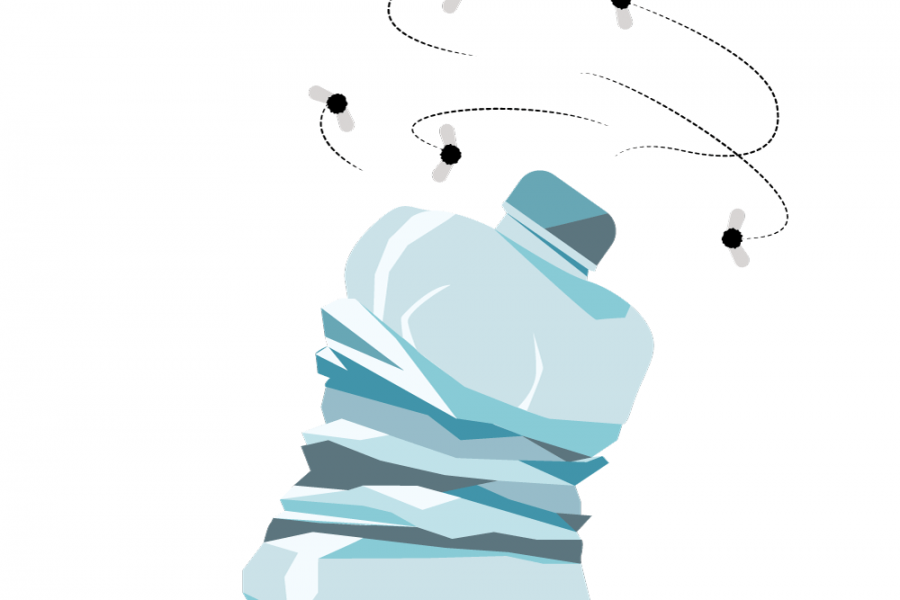Anti-vaxxers consists mainly of wealthy individuals who should honestly know better.
The decision to not vaccinate your child—for either personal qualms or medical doubts—assigns you the label of an “anti-vaxxer.” The exact reasons vary, but regardless, the result is putting at risk those who are under-vaccinated due to economic inequality or legitimate health risks. A dreadful combination of educational, economic and racial privilege has produced a belief that one knows better than the scientific and medical communities at large and created a blindness to the negative implications that the decisions of the few have on the rest of us.
There is overwhelming evidence that vaccines are safe. Through copious amounts of research, The Center for Disease Control, American Academy of Pediatrics, World Health Organization and the Institute of Medicine all reject the idea that there’s a link between vaccines and autism. The one piece of medical literature that has claimed a link between the two was written in the ‘90s and has since been severely debunked.
According to the CDC, about 30,000 children get “sick” after receiving vaccinations. Within this number, around 85% are merely mild irritations or a temporary fever. The other 15% could possibly be children facing life-threatening issues, but there is a difference between correlation and causation. Though a child’s health may be endangered, there is no evidence to support it has anything to do with the vaccines.
In addition to this, a child’s immune system is not weakened by the artificial protection the vaccine provides. The World Health Organization’s data shows there has been a significant 80% drop in deaths related to measles after the introduction of the vaccine.
According to the CDC, from Jan. 1 to July 3, 2019, 1,109 individual cases of measles have been confirmed in 28 states. This is an increase of 14 cases from the previous week. This is the greatest number of cases reported in the U.S. since 1992 and since measles was declared eliminated in 2000.
Not so coincidentally, those opting out of vaccines and producing patient zero are also a part of the upper-middle class.
Recent outbreaks among unvaccinated populations have been clustered among upper and middle-income populations. A study published by the American Academy of Pediatrics in 2010 that examined a 2008 measles outbreak in San Diego found that “reluctance to vaccinate…was associated with health beliefs, particularly among well-educated, upper- and middle-income segments of the population, similar to those seen in measles outbreak patterns elsewhere in 2008.”
An older study, published in Pediatrics in 2004, found similar trends but in addition tracked race. The researchers found, “Unvaccinated children tended to be white, to have a mother who was married and had a college degree, [and] to live in a household with an annual income exceeding $75,000.”
This community has more free time on their hands than lower income parents—time that can be spent pouring over anti-vaccine forums and websites and applying for state-specific exemptions required to bypass school immunization laws. And when the outbreak hits, they are not the ones who are left scrambling to stay alive.
A 2005 study conducted by the CDC found social networks exerted the strongest influence in the decision to not vaccinate. Having anti-vaxxers in one’s social network makes a parent significantly less likely to vaccinate their children. This means that as much as non-vaccination is an economic and racial trend, it is also a cultural trend, reinforced through the shared values, beliefs, norms and expectations common to one’s social network.
The majority of those who are unvaccinated—due to limited access to material resources and healthcare—are a population composed primarily of children living in poverty, and of that, many are racial minorities. This means that wealthy, white, highly educated anti-vaccination parents are mostly putting at risk the health of poor, unvaccinated children. From this perspective, the anti-vaxxer issue is a rampant issue of arrogant privilege running rogue over the structurally oppressed.
A research referenced in an article published by The Washington Post last year suggests wealthy people have less empathy than everybody else.
“Wealth is basically a mechanism for power, and power has a freeing effect on people,” said social psychologist Adam Galinsky. “It takes away the constraints of society and frees people to act according to their dominant desires.”
The conversation surrounding vaccines should not be as personal as it is. The purpose of vaccines relies on the participation of the majority in order to protect those who cannot partake. Getting vaccinated is a social responsibility, not a personal one.






